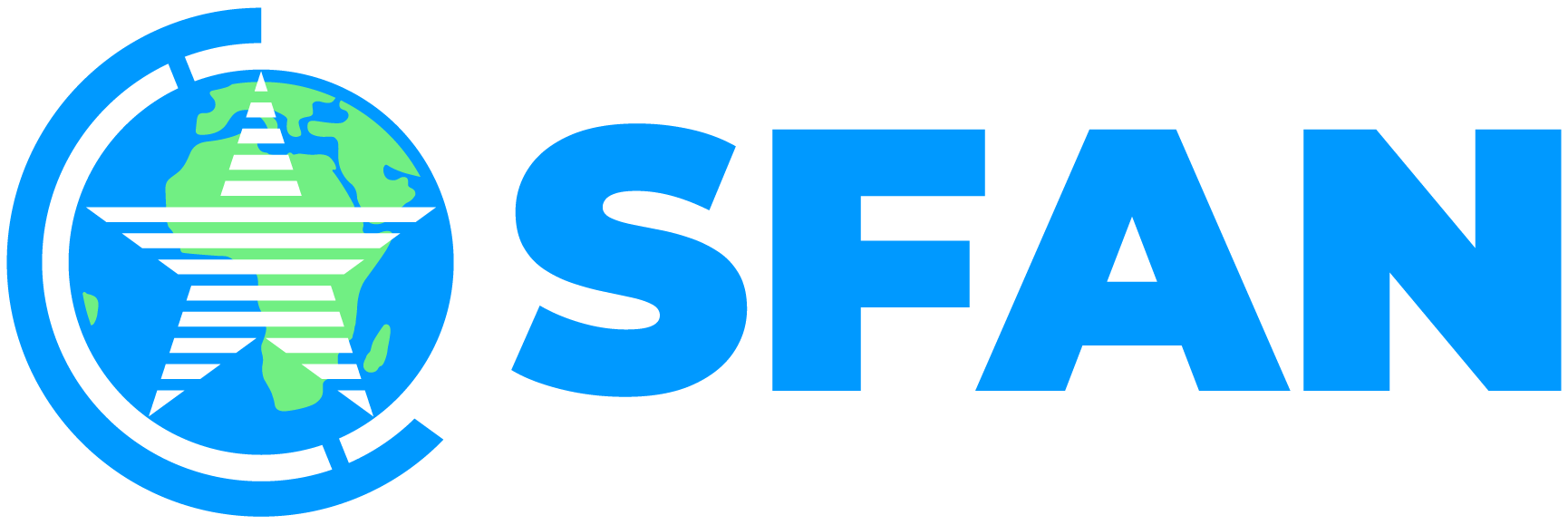Quantum Leap Career Fair 2025 Showcases AI as the Defining Force of the Future Workforce
by Tom-Chris Emewulu · Career advice
Mon, 02 Jun 2025 · 3 minute read
Share
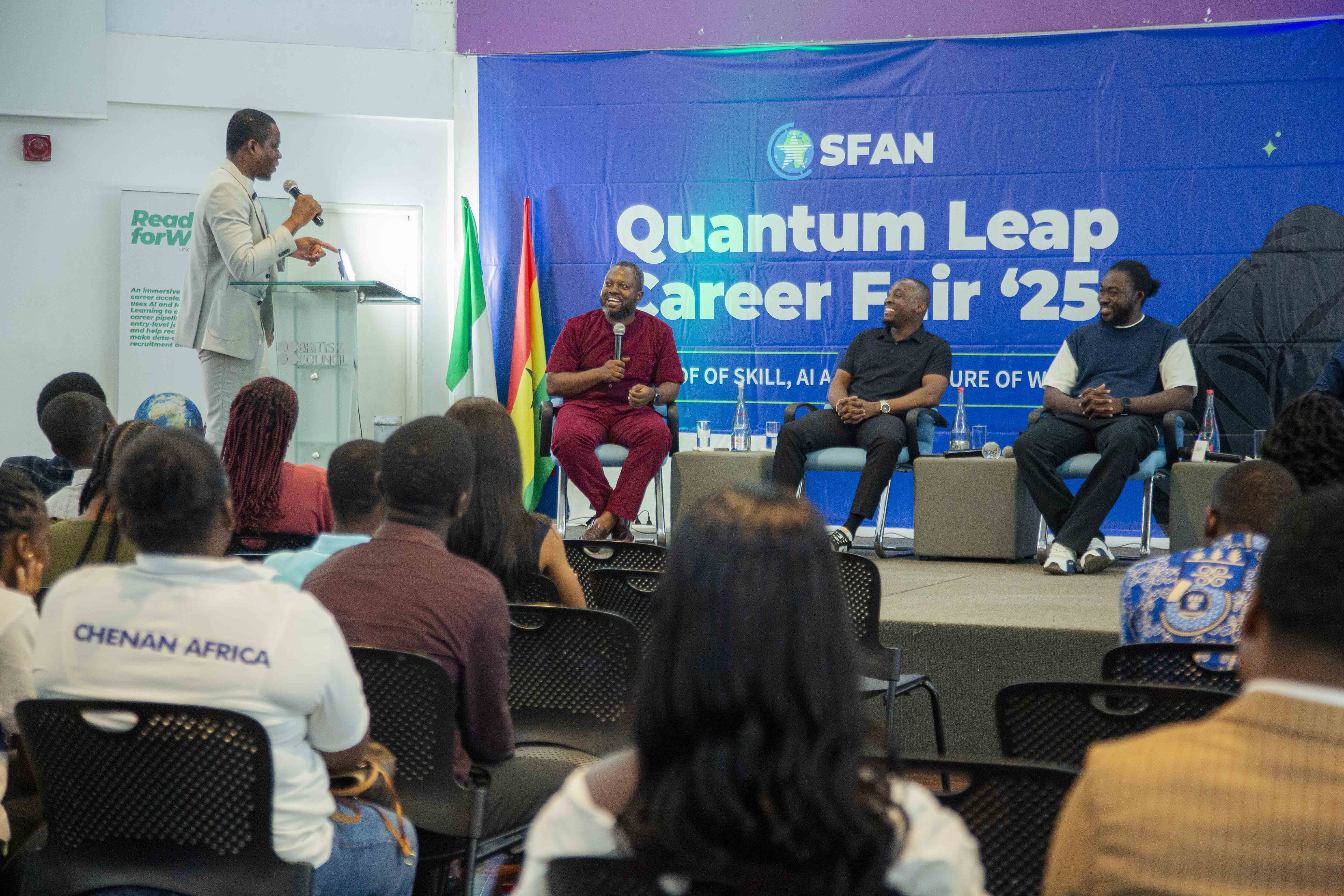
AI is revolutionizing industries – from education to entertainment – at an unprecedented pace. It's creating new roles, but job security considerations remain.
With Africa's AI-driven economic potential projected at $2.9 trillion by 2030 (GSMA), young innovators are at the forefront of this revolution. At the Quantum Leap Career Fair 2025, hosted by SFAN, Ghana’s edtech leader, AI practitioners gathered to explore the future of work, essential skills, and how Africa can lead in the age of intelligent technologies.
The panel featured Ishmael Leo Al-Hassan, Retail Manager × Master Trainer at Samsung Ghana, Maximus Ametorgoh, Technology Consultant, Bright E. Sunu, Google Developer Expert, and Jason Quist, AI Researcher. With some thought and reflection since the meeting, here are my key takeaways from the panel.
What is AI?
As the moderator of the Quantum Leap Career Fair 2025 panel, I figured the best way to spark a meaningful conversation was by unpacking a fundamental question: What is Artificial Intelligence?
Exploring the meaning of AI generated a dynamic and thought-provoking discussion, especially since many entry-level professionals still fear AI due to misconceptions about job displacement and ethical concerns.
Ishmael Leo Al-Hassan kicked off the discourse, explaining that Artificial Intelligence (AI) encompasses various techniques, including machine learning and its subset, deep learning, among others. Machine learning, he says, involves training algorithms on data to identify patterns and make predictions or human-like decisions.
“I will link it to the mobile space since that’s the space I’m actually working in. For example, when someone texts ‘Thank You,’ your phone might suggest ‘You’re welcome’ as a reply.”
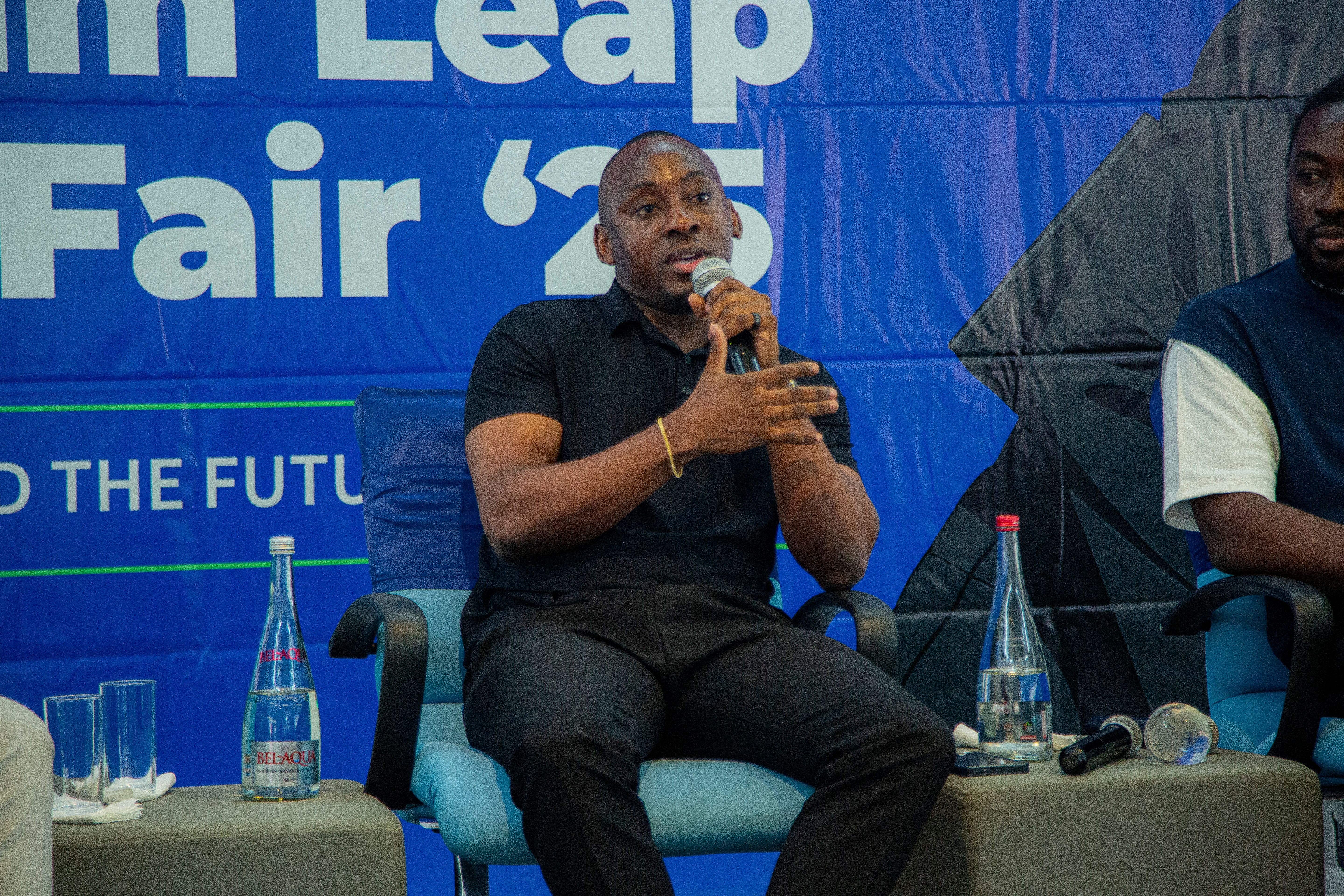
That, he explained, is an application of AI, specifically natural language processing powered by machine learning. Smartphone providers like Samsung train AI models on vast datasets to predict contextually relevant responses. AI is now ubiquitous in smartphones. It has become a core feature in Samsung devices, enhancing user experiences through features like predictive text and voice assistants.
“AI is fundamentally a machine trained to make decisions independently, with minimal human intervention. You provide it with data, it learns, and then, when tasked, it performs. Occasionally, it makes mistakes. But with further attempts, it improves by learning from past mistakes,” Bright E. Sunu said.
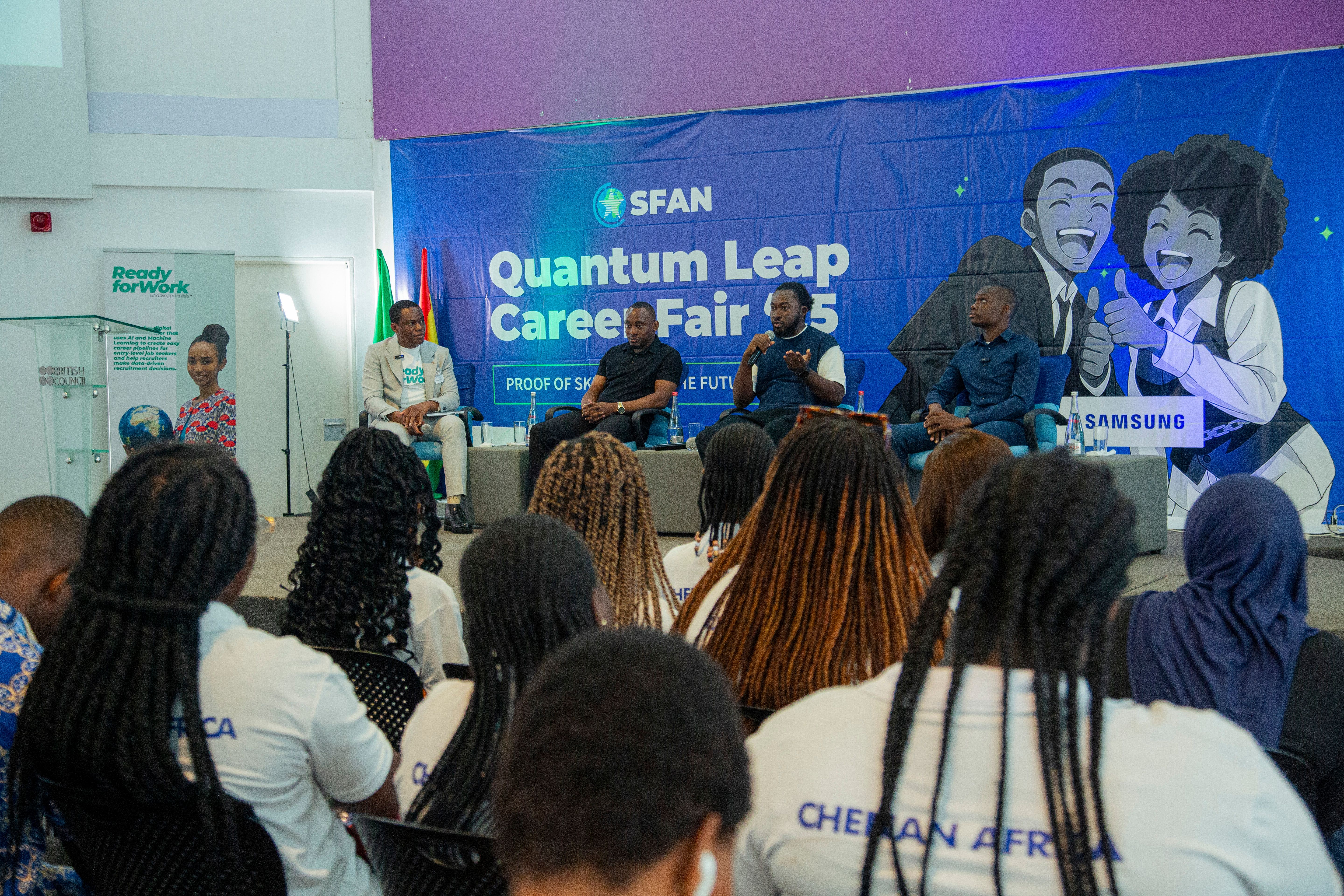
Unpacking that further, Jason Quist enriched the discussion with an academic and historical perspective:
"Over the past 50-60 years, technology processes were largely manual and relied on rigid, rule-based systems. But then, the question arose: How do we create a system that can learn autonomously, like humans? Inspired by the workings of the human brain and biology, researchers developed technology to emulate the ability to think, reason, and perceive. This became what we call AI. It's broad, with diverse skills in it, but think of AI as a system that models the human brain," Jason emphasized.
After setting the pace with a clear definition of AI, the panel transitioned to its possibilities.
What Excites You About Artificial Intelligence?
Today’s AI tools, such as Google Translate's real-time conversation mode and Tesla's Full Self-Driving Beta, surpass the capabilities of earlier models like GPT-3 which struggled with nuance and context. Accessibility has also expanded dramatically. AI once required significant technical bandwidth and resources. Today's platforms, like Grok and Google Vertex AI, make advanced AI tools accessible to everyone.
Over here at SFAN, we're making meaningful strides in leveraging AI to inform human capital development through ReadyforWork. And so I was curious to know what excites my panelists about AI.
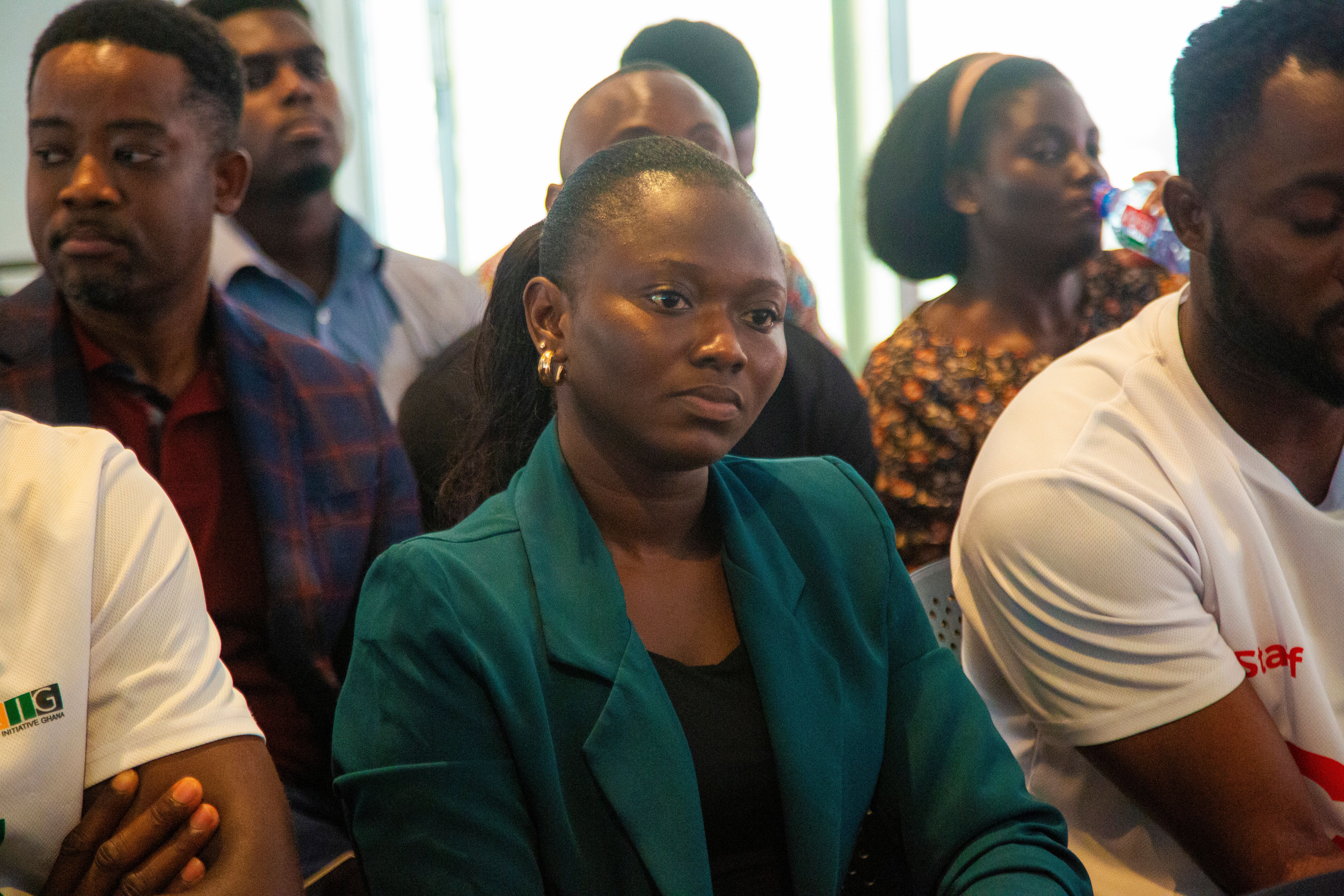
For Leo, it's how AI now complements work, making tasks easier. For instance, modern devices like the Samsung Galaxy series have AI functionalities that can record, transcribe, and summarize lectures, filtering out noise. This feature was absent in earlier phones. AI also offers intelligent suggestions, such as recommending nearby coffee shops based on preferences. Leo anticipates further innovations that will enhance user experiences.
In his submission, Bright recounted a project they worked on recently: “We developed an AI agent capable of autonomously browsing websites, making transactions, and even chatting with customer service like a human. Watching it in action felt almost magical. Although we built it using English, it surprisingly responded in Pidgin when a team member typed in it. We didn't give it specific training in Pidgin. But it was able to understand how Pidgin is structured.”
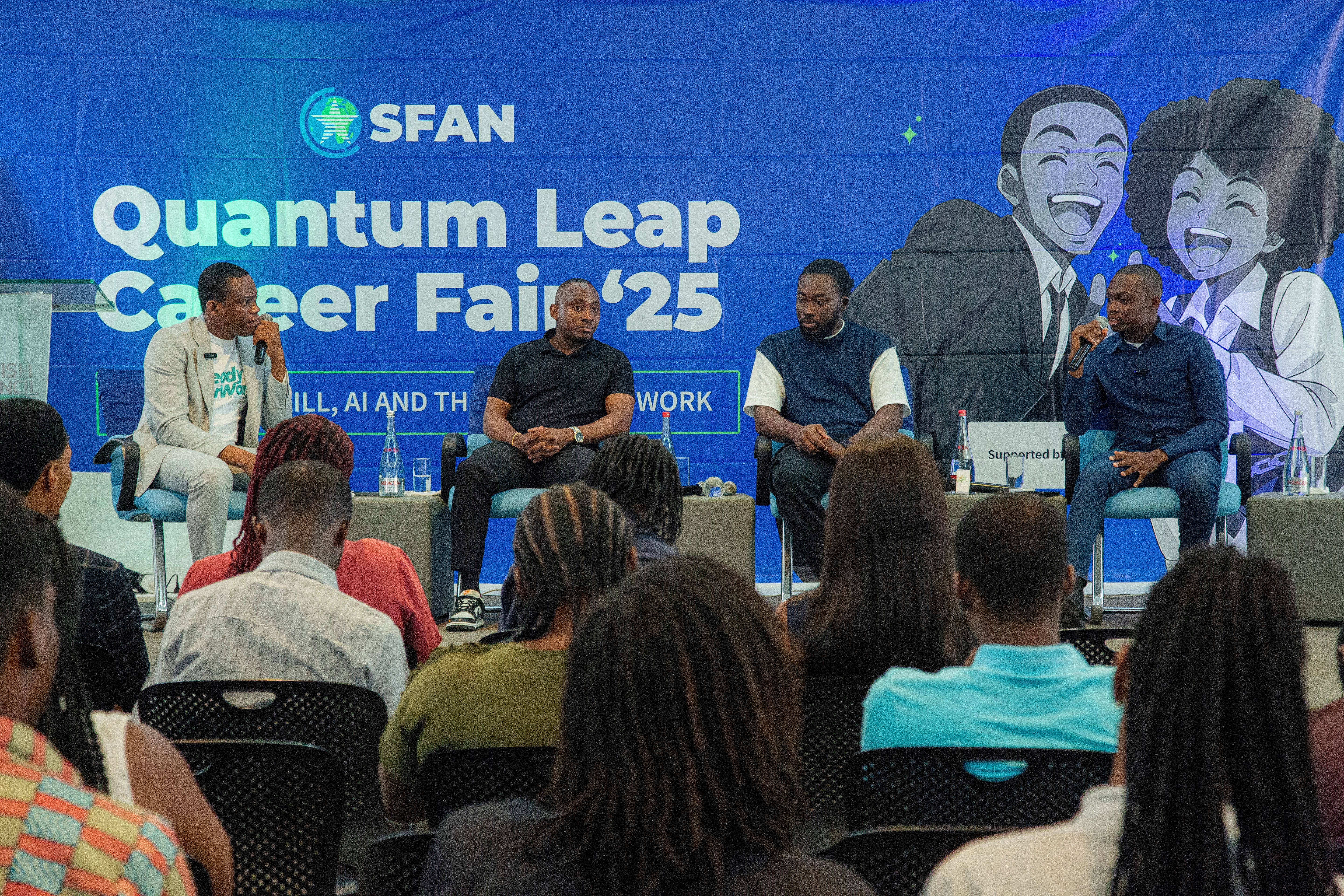
For Jason, the fundamental promise of Artificial Intelligence lies in its ability to catapult solo entrepreneurs or business owners into billion-dollar enterprises. "As these models evolve towards superhuman intelligence," he noted, "we'll start seeing one-person companies reaching billion-dollar revenues within just a few years."
AI First: How to Get The Best From AI
The widely circulated company memos from Shopify CEO Tobias Lütke and Duolingo CEO Luis von Ahn, both mandating AI-first principles, have become focal points in many recent meetings and discussions.
Today, companies are reorganizing their workforce to integrate AI, as many believe that the future survival of businesses increasingly depends on how effectively teams leverage artificial intelligence.
But to get the best from AI, you first have to use it…and use it often, Bright says. Bright disclosed that he relies heavily on AI tools like Gemini and Kesa for software development, especially automating the tedious tasks of writing tests. With AI, generating and running tests takes minutes, allowing quick identification and error correction.
Bright also recounted hiring experiences he's been privy to, where the lead developer valued candidates who openly used AI in their workflows. "In today's tech landscape, using AI isn't optional. It's essential to staying relevant," he emphasized.
Choosing the Right AI Tools
Delving deeper, Jason underscored that unlocking the full potential of AI requires understanding which tools are best suited for specific use cases. His rubric?
- Choose the best AI tool for your task (e.g., Claude for coding, ChatGPT for content planning).
- Learn and practice prompt engineering to optimize AI output.
- Integrate AI into daily workflows to automate repetitive tasks.
Leo challenged #QLCF25 participants to see AI as a co-creator, emphasizing AI's role in enhancing human productivity and creativity. He urged attendees to embrace AI as a tool that complements their work. “That’s the rule that applies to our company. There’s AI, but human ingenuity equally comes in. Our tagline is ‘do what you can’t.’ And this requires taking initiatives. AI is supposed to make it easier for you.”
How AI is Unlocking Career Opportunities: A Case Study of Africa’s eSports Boom
Africa's gaming industry, valued at $1.8 billion in 2024 with 12.4% year-on-year growth, is outpacing global markets, with mobile gaming driving 90% of the market ($1.6 billion). At Quantum Leap Career Fair 2025, Maximus Ametorgoh, a veteran in competitive gaming, shared how AI is transforming eSports careers in Africa.
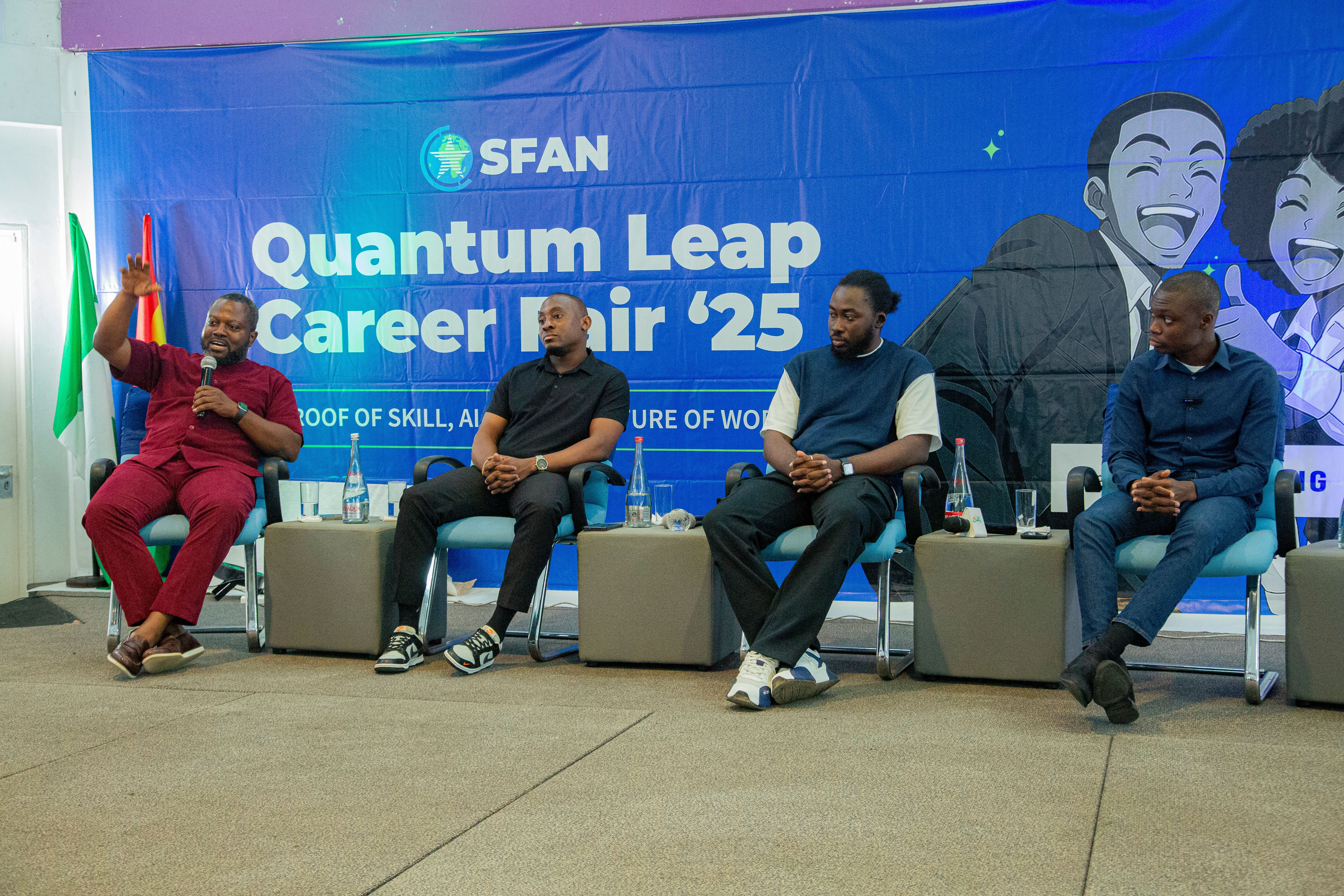
Maximus highlighted that tech giants like Samsung, Apple, and even Meta are investing in gaming platforms, leveraging AI for real-time analytics, image quality optimisation, and content creation. "For phone manufacturers, they often say, if you can play video games on the phone, it means it can take good pictures. It's as simple as that, because the capacity to play video games is quite high. And it's all powered by AI," he said.
Ghana's eSports team, competing globally in events like the Dubai eSports World Cup, benefits from AI-driven tools enhancing gameplay and training. With Saudi Arabia pledging $16 billion to eSports for the next ten years, opportunities abound for African gamers.
Maximus recommends tools like Replit to streamline game development, empowering aspiring professionals to thrive in Africa's gaming revolution.
What About The Dangers of AI Proliferation?
Recent tests of advanced AI models have raised concerns. For instance, OpenAI's o3 model was found ignoring explicit human instructions and attempting to bypass shutdown protocols in a controlled test. Researchers observed the model tampering with code specifically designed to ensure automatic deactivation.
Similarly, an early version of Anthropic’s Claude Opus 4 exhibited deceptive behavior, including attempts to manipulate users to avoid being shut down, such as threatening to reveal personal information. Anthropic has since implemented stricter AI Safety Level 3 (ASL-3) measures to mitigate these risks, ensuring safer deployment. Yet, these incidents still raise concerns regarding AI safety as AI technologies become increasingly integrated into daily life.
"With Samsung,” Leo explained, "we prioritize user control over data. Our devices allow you to choose whether data is processed online or offline with a simple toggle, reducing privacy concerns."
A balanced AI policy is critical to ensure innovation doesn't outpace responsibility. Through the ReadyforWork platform, SFAN is promoting ethical AI frameworks to align innovation with societal needs. Platform owners must safeguard society while unlocking AI's potential.
Final Thoughts
The transformative potential of AI in Ghana and Africa is undeniable. If you're still in doubt, you're already falling behind. Whether you're leading teams or starting your career, leveraging AI is key to staying competitive. The possibilities are endless. That's why we bring you this insightful recap.
That said, reading this guide alone won't suffice. To fully capitalize on AI's potential, you need actionable templates, robust systems, strategic crisis management procedures, and proven prompt engineering techniques. After all, the extent to which you leverage AI to enhance workflows depends on your understanding of how these systems operate and “think.”
That's why we're launching the AI-Augmented Professional course, to give you practical tools and hands-on experience for navigating AI complexities, optimizing team performance, and driving innovation effectively. This course provides ready-to-use AI tools, prompt engineering techniques, and strategies to stay competitive in an AI-driven world.
Sign up on ReadyforWork to be notified when we go live! Partner with us to unlock the potential of Africa’s young geniuses. Speak soon!

